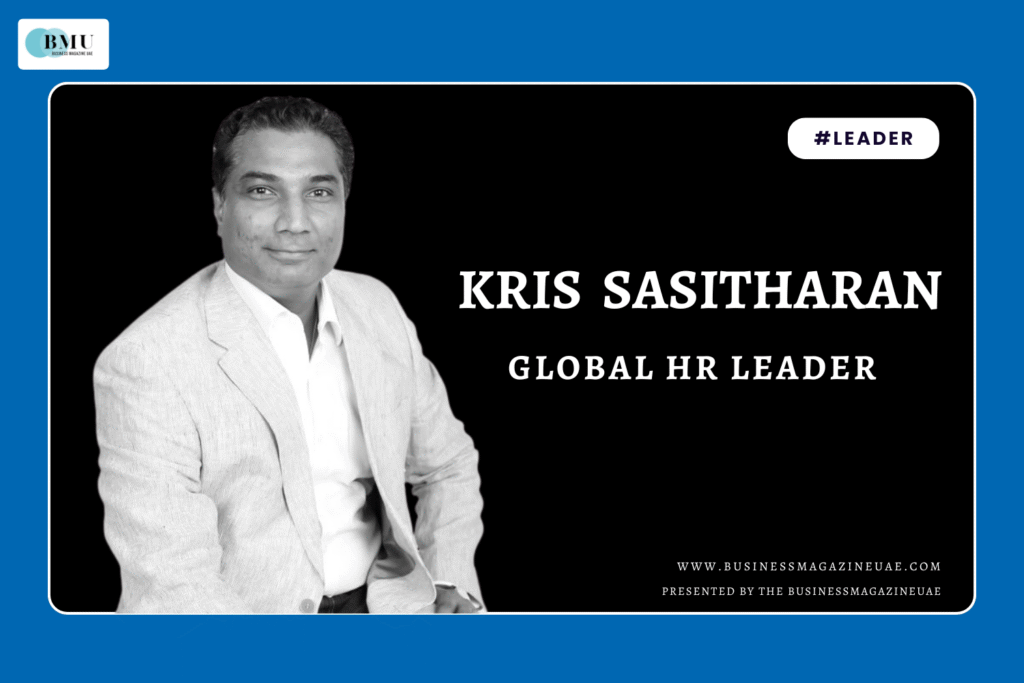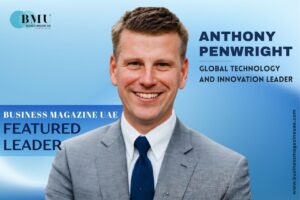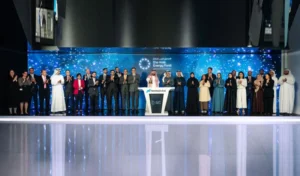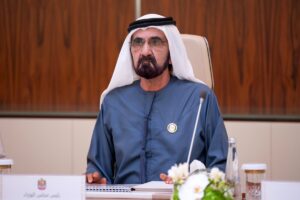
A global HR leader, Kris Sasitharan, brings over two decades of experience shaping people and talent strategies across Europe, Asia, the Middle East, Africa, and beyond. With transformational roles in multiple industries and geographies, building high-performing teams and driving cultural change, he has positioned HR as a true business partner.
As a former competitive sportsman, he brings the same discipline, tenacity, resilience, and team-first mindset from the field into the boardroom. Passionate about unlocking human potential, Kris Sasitharan is focused on preparing organisations, through their people, to thrive in an ever-changing world of work.
Spark Behind the Journey
We started the interview by asking, “What first inspired you to pursue your current industry or professional path? Was there a defining moment or influence that shaped your direction?”
Kris shared, “My years in competitive sport shaped how I view people and performance. Sport taught me that talent can win a match, but it’s teamwork, culture, and trust that win championships. That lesson stayed with me and pushed me toward a career where I could bring those principles into organisations. Over time, I realised that the real differentiator in business isn’t strategy or capital — it’s people. I’ve been part of several business transformations and seen how aligning people, culture, and strategy can completely shift the direction of a company. I have also seen the flip side happen when focussing on individuals seldom produces consistently strong business outcomes. Just like in sport, it’s never about individuals — when the team dynamic is right, extraordinary things happen.”
Navigating through Challenging Phases
Intrigued to learn how Kris Sasitharan overcame the inevitable challenges in his professional path, we asked, “Can you describe one significant challenge you’ve faced in your career or business, and how you successfully overcame it?”
“There have been many, given the geographies I’ve worked in — Hong Kong, Moscow, Dubai, Singapore, Luxembourg, Nairobi, you name it. One that stands out was when I was asked to manage the hiring for a brand-new entity in East Africa. It meant navigating a new regulatory, cultural, and business environment while scaling at speed.
Much like in sport, the challenge wasn’t just technical; it was about building trust, learning the ‘rules of the game,’ and pulling the team together under pressure. I had to balance the demands of senior stakeholders, team members, and the external environment. By listening carefully, co-creating solutions, and empowering local leaders, we not only launched successfully but also built something sustainable. My experiences have helped me adapt and tweak this playbook toward successful outcomes in different circumstances,” he explained.
Potential Trends of the Future
We further asked, “What key trends or changes do you foresee shaping the future of your industry over the next 3–5 years?”
Kris mentioned, “The way we think about work is changing at its core. Three shifts stand out: firstly, with the rise of skills-based organisations — roles will matter less, capabilities will matter more. Additionally, employees now expect flexibility, well-being, and purpose as part of the deal, not as perks. And thirdly, AI and digital tools will become embedded in how we hire, develop, and engage people.
In the UAE, we’ll also see nationalisation, future-ready skills, and building the region as a global talent hub drive big changes.”
Plans we asked Kris Sasitharan
Interested to learn more about Kris Sasitharan’s plans for his career and business, we asked, “What are your long-term aspirations for your company or role, and what strategies are you implementing to reach them?”
“My aspiration has always been to leave organisations more capable, resilient, and people-focused than when I joined — so they’re ready for the business challenges ahead. I believe HR belongs at the boardroom table as a genuine value-creation function, not just a support role.
To make that real, I focus on three things — building strong and sustainable leadership pipelines, embedding a business-focused mindset in HR, where everything we do should tie back to outcomes like growth, profitability, or efficiency. Lastly, championing inclusion and diversity to spark creativity and performance. That way we deliver both business results and a compelling employee experience,” he commented.
Embracing Innovative Practices
With technological advancements reshaping the way businesses operate, we asked Kris Sasitharan, “How do you see artificial intelligence and emerging technologies influencing your industry or business model?”
He responded, “AI will reshape HR in ways we’re only starting to grasp. It’ll take over repetitive tasks and free HR teams to focus on higher-value work. It’ll also help us use predictive analytics for hiring, engagement, and retention, making decision-making sharper. But it’s not just an opportunity — it’s a responsibility too. We have to ensure fairness, transparency, and ethical use of data. AI can be a powerful enabler, but people and human judgment must stay at the centre.”
Values Rooted in Kris Sasitharan’s Leadership Approach
We also asked, “What are the core values or guiding principles that influence your decisions and the way your organization operates?”
Kris shared, “Four values guide me: integrity, empathy, courage, and continuous learning. Integrity builds trust; empathy helps me connect with people and their realities; courage gives me the strength to make tough but necessary calls; and continuous learning keeps me growing in a fast-changing world. These aren’t just personal anchors — they’re the principles I want my teams and organisations to live by.”
Major Breakthrough in Business
To stand apart from the competition, businesses must adopt innovative practices. To learn more, we asked Kris Sasitharan, “Can you share an innovative strategy or approach that helped your company stand out or achieve a breakthrough?”
“In one organisation, we were expanding fast across emerging markets. The easy option was to ‘copy-paste’ existing HR models. Instead, we designed an agile, modular approach — lightweight people systems that could scale up or down depending on market maturity. That gave us speed, efficiency, and local relevance. It was a breakthrough because we resisted one-size-fits-all and built flexibility into the DNA. It positioned HR as an enabler of growth, not a bottleneck,” he replied.
Evolution as a Leader
Lastly, we asked, “How has your leadership style evolved throughout your journey, and what lessons have shaped your approach to leading teams or businesses?”
“Sport gave me a strong start — early on I was very driven, very hands-on, and wanted to ‘play every position on the field.’ With time and experience, I’ve learned the power of empowerment. Today, my style is more coaching-led: set direction, create clarity, then give people the space to deliver. I’ve also learned that leadership is contextual. What works in Singapore may not work in Saudi Arabia, and what resonates in India may not in the UAE. The biggest lesson has been to stay adaptable, listen deeply, and lead with authenticity — much like a coach who adjusts tactics to get the best out of the team,” Kris added.
Connect with Kris Sasitharan on LinkedIn.
Also Read:
Hamdan Establishes Dubai Founders HQ to Unite the startup and SME Communities






